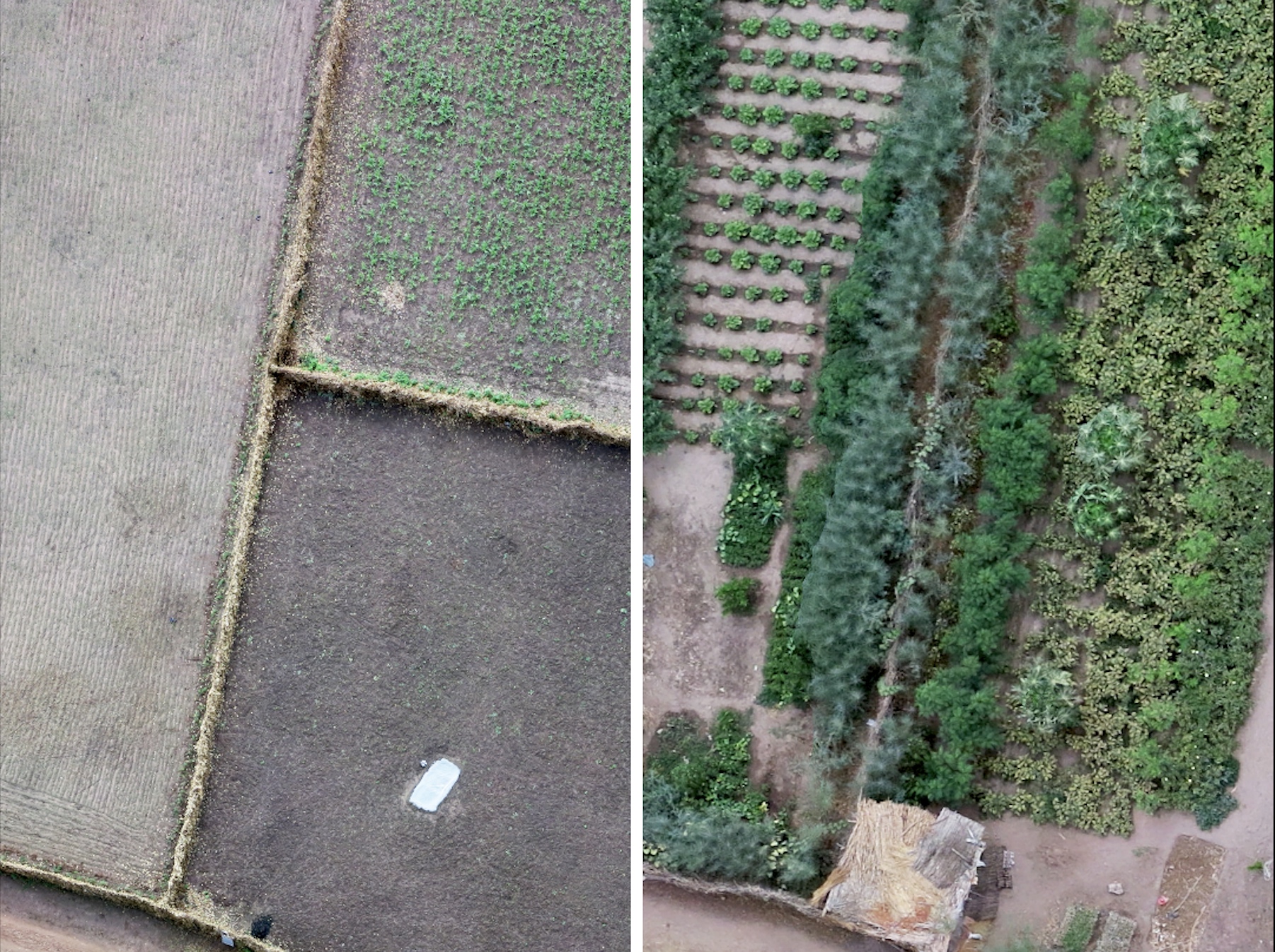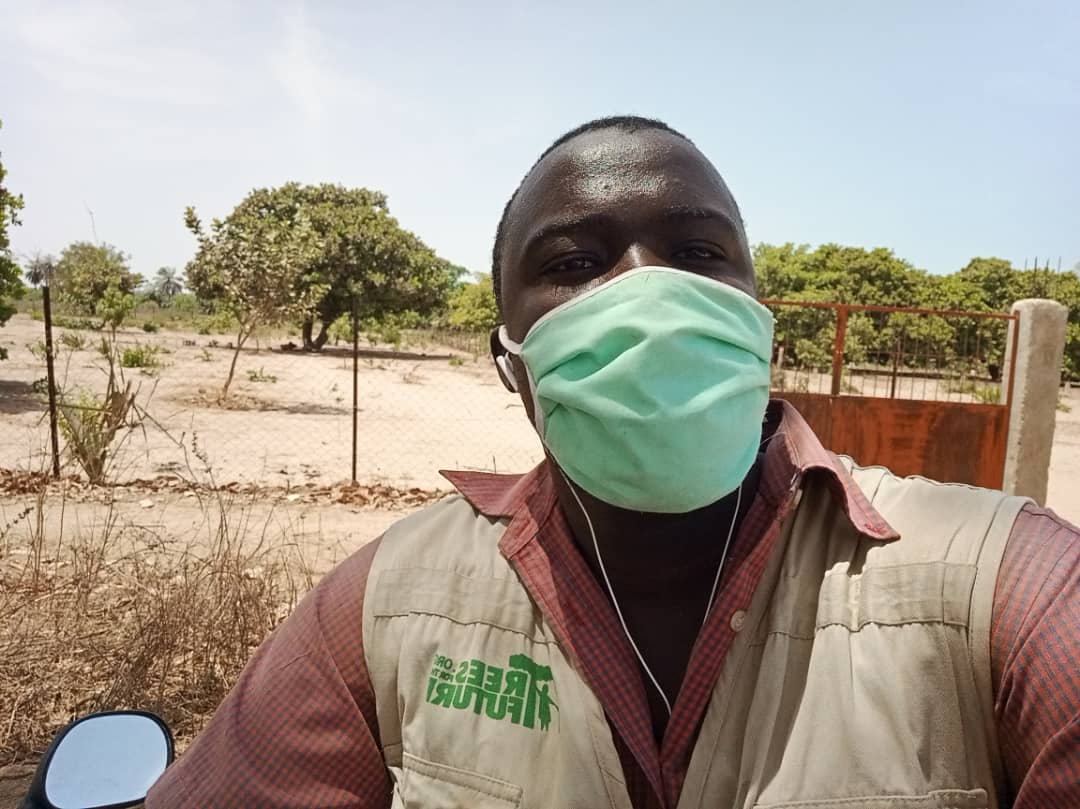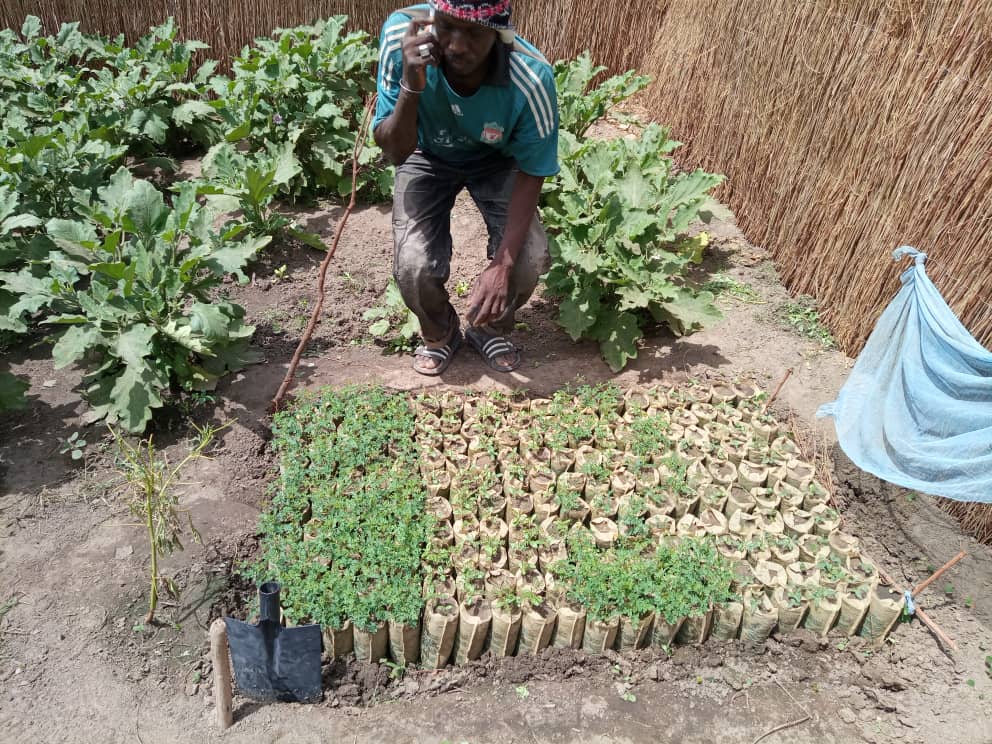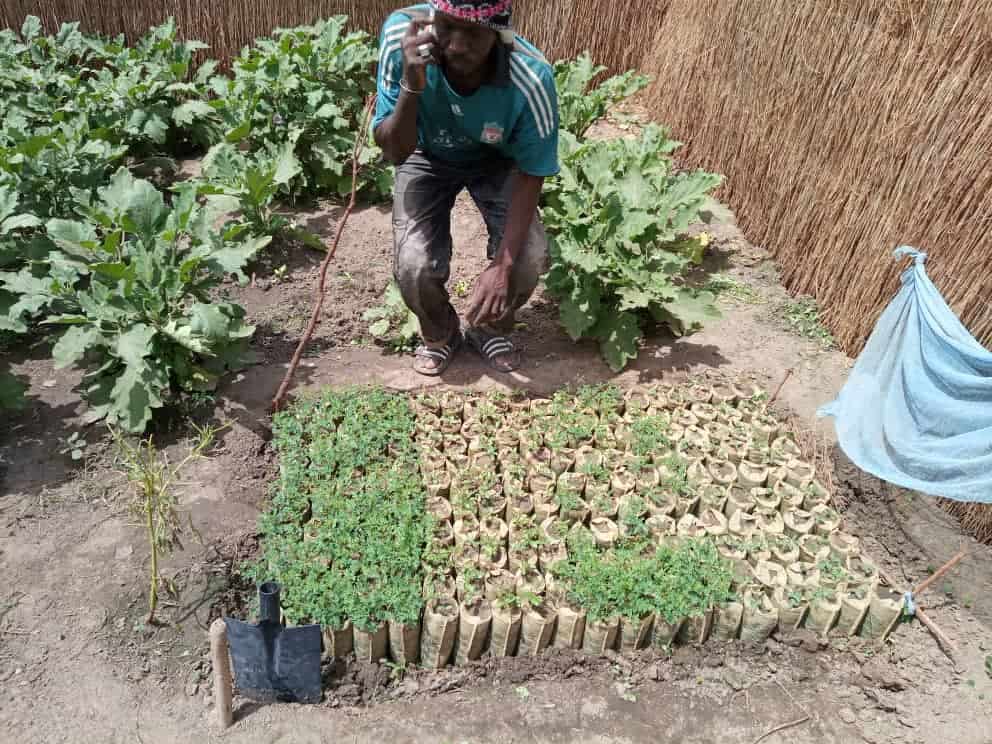90% of the population is dependent on agriculture, but decades of unsustainable practices and worsening weather patterns brought on by a changing climate have made agriculture a challenging profession. The industry that should be supporting the region’s health and prosperity is responsible for startlingly high rates of hunger and poverty, leaving farmers facing a challenging road to success, or even survival.
“Many of our young people are trying to migrate to the capital due to lack of resources,” says Mamadou Ndong, a Fatick farmer who has watched would-be farmers leave their homes rather than face a life of farming in Senegal.
But regenerative agroforestry nonprofit Trees for the Future (TREES) aims to improve agriculture and the food system in Fatick and help farming communities find success and stability on their land.
TREES trains farmers in what is called the Forest Garden Approach, a strategy that combines agroforestry and permagardening to protect and revitalize degraded land, diversify crops to eat and sell, and optimize space, all for the benefit of the farmer, their family, and the environment.

Coming to Fatick
TREES’ Senegal staff have been training farmers in the Forest Garden Approach across other regions of Senegal since 2014. The organization is currently working with more than 2,300 families in the neighboring region of Kaffrine, and news of the Forest Gardens’ success spread.
“The case of Fatick is special because Kaffrine is not too far from the region. Several [Fatick farmers] had the opportunity to see the results of TREES’ work against malnutrition and unemployment in Kaffrine,” said Djidiack Faye, a TREES supervisor. “During a meeting, an elder in the village of Sourou took the floor and explained to the other villagers what he saw in various TREES projects in Kaffrine. Thanks to the Forest Garden Approach, TREES is revitalizing the agricultural sector of an entire region long affected by extreme poverty”
Before the COVID-19 pandemic, TREES staff spent months speaking with local farmers, community leaders, and officials before establishing each project in Fatick (this is considered the “mobilization phase”). They also considered proximity to both weekly markets and permanent markets as well as water availability. Ultimately, TREES initiated four projects in the region, made up of 43 villages of various sizes and 1,424 farming families.
Fatick Farmers Embrace Forest Gardening
The Fatick projects were unique in that they began shortly before COVID-19. TREES ceased all in-person training and embraced a virtual training approach before more recently allowing in-person training in small, socially-distanced groups; providing masks, WASH (Water, Sanitation, Hygiene) supplies, and hygiene education; and requiring staff and farmers to wear masks.

Despite the unusual start, project participants quickly began benefiting from the virtual training and have already been able to establish tree nurseries, which are key in growing the thousands of trees that will eventually make up the living fence that surrounds and protects their Forest Gardens.
“This project is a boon for us,” says participant Mountakha Sarr who started his nursery in June. “The technicians are listening and every day I learn new things about farming. This is the first time that a project has arrived here and the revenues are entirely for us. Trees for the Future is the future of [my village] Dagadiawdine.” Sarr goes on to say that the nursery he has created with TREES training is the best nursery he has ever had. “It’s very different from what I’ve made before, it’s aligned and well-structured.”

Other farmers share Sarr’s sentiment that TREES has provided the knowledge and resources that were missing for so many farmers faced with low yields and very little revenue.
“We are happy because in our area, life is hard,” says Ndeye Diouf, a lead farmer. “We have implemented many projects for a long time but we had neither the necessary funds nor the support. For a mother, there is nothing harder than getting up without having enough to give to your family. So this opportunity is like a dream for me, we are so motivated.”
Mamadou Ndong, who has witnessed so many young farmers leave the region in search of opportunity, says that the Forest Garden Approach is offering the pathway to success they’ve been searching for. “Trees for the Future gives us the means to start a new life and to have knowledge to bequeath to our children.”
Building Business
As farmers learn to diversify their crops and their Forest Gardens mature, TREES staff will also educate them in market opportunities and finance.
Fatick is conveniently located next to Toubacouta, a tourist town known for eco-travel, with many hotels and hostels. Djidiack Faye says the region is bursting with opportunities for farmers and says one lead farmer has already made an agreement with one of the hotels in Toubacouta to sell produce. Previously, these hotels often sourced their produce from Senegal’s capital, Dakar, 221 miles (337 km.) away, contributing to greenhouse gas emissions via transport and leaving many local farmers out of the supply chain.
“All the hotels in this area prefer organic vegetables and fruits,” he says. TREES staff take farmers through value chain education and prepare them for these business opportunities. “They will be able to sell their products quickly. From the design of the Forest Garden to the sale of the harvest, everything is in place to allow economic growth in each intervention area in six months.”
TREES consistently sees hunger and poverty rates fall for families who embrace the Forest Garden Approach. Over the next three and a half years, and beyond, Fatick Forest Garden farmers will continue learning, improving their land, and benefiting from their new Forest Gardens. And as their Forest Gardens take root, so too will their success and prosperity.
